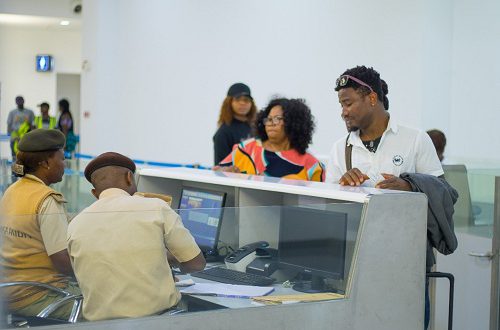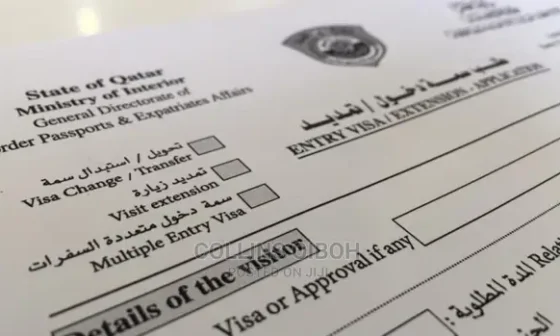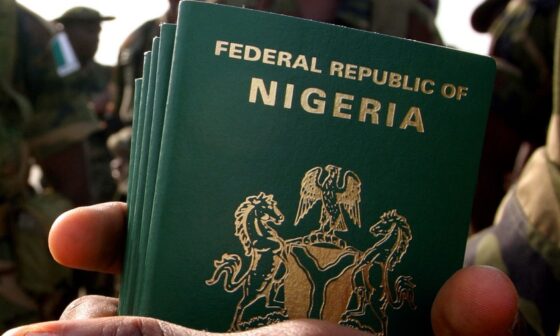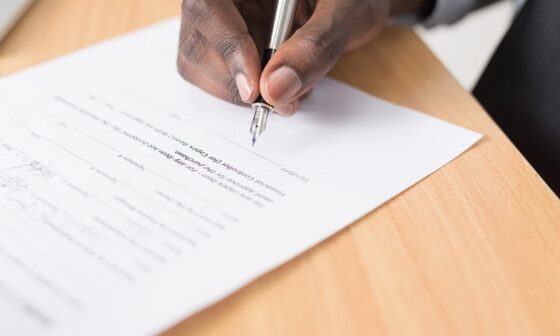Imagine having everything ready for your trip—your bags are packed, your papers are ready, and you’re getting excited—but when you get to the airport, you are stopped by immigration. It can be scary, especially for people traveling from another country, like many Nigerians who are going abroad for the first time. Let’s talk about whether or not it’s legal, why immigration might stop you at an airport, and what to expect.
What is an Immigration Stop?
When traveling abroad, I’ve found that an immigration stop at an airport can be scary, but knowing why it’s there helps. Immigration officers make sure that all travelers are safe and secure and follow the rules of the country you are visiting or leaving.
Can Immigration Stop You at an Airport?
Yes, immigration can stop you at an airport. Officers at the immigration desk can stop travelers for several reasons, such as checking travel documents, addressing security worries, or doing random checks. These stops are legal and are a way for a country to keep its borders safe and under control. Denying or delaying an immigration officer’s orders can have serious effects, so it is important to follow through and answer questions honestly.
Why Can Immigration Stop You at an Airport?

Officers at the border can stop travelers for several reasons, including to ensure everyone’s safety and to enforce the laws of the country. This is the main reason:
- Document Verification: Immigration officers need to check that your travel papers, like your passport, visa, and boarding pass, are valid and belong to the person who is traveling. They look for things like expiration dates, legitimacy, and information that doesn’t seem to match up.
- Behaviours: That Make People Suspicious: If you act in ways that make people suspicious, like being tense, telling a story that doesn’t make sense, or having things that aren’t allowed, you could be stopped and questioned further. This helps police find possible threats to safety or illegal actions.
- Random Checks: Stops can happen for no particular reason and aren’t always a sign of wrongdoing. Random checks are a common way to make sure that all travelers are looked at and that no one is being profiled.
- Security Concerns: An immigration stop can be made if there is a threat to national security or if someone is suspected of doing something wrong. Suspicion of terrorism, smuggling, or other illegal actions are some examples of this.
Immigration stops are an important part of border security because they help keep a country’s entry and exit places safe and secure.
Are These Stops Legal?

Yes, immigration stops are allowed and are a part of a country’s efforts to keep its borders safe. Immigration officials make these stops to make sure that travelers follow the rules and laws about immigration. A report from the International Air Transport Association (IATA) says that more than 1 billion people were screened at airports around the world in 2019. This shows how common and important these operations are.
These are things that immigration officers can do:
- Verify papers: Make sure that passports, visas, and other travel papers are still valid and meet the requirements for entering or leaving the country.
- Ensure Compliance: Make sure travelers follow the rules of their visas, like not staying longer than allowed or doing things that aren’t allowed.
- Assess Security Risks: Find and fix possible security threats. Some examples are people on watchlists, people carrying illegal things, or travelers who act strangely.
- Do Random Checks: Do random checks to keep the immigration process honest and stop people from doing illegal things.
Legal Frameworks
Laws from around the world and in this country support these stops. As an example:
- The United States Immigration and Nationality Act (INA) gives immigration officers the power to check people in and decide if they are allowed to stay.
- The Schengen Borders Code controls how travelers enter and leave the European Schengen Area. It allows for paper checks and border checks.
- In Nigeria, the Immigration Act of 2015 spells out what immigration officers can and can’t do to enforce immigration rules.
Enforcement and Compliance
The enforcement measures that can happen after these stops are also legal. If an officer finds that a traveler is breaking immigration rules, they can decide to:
- Deny Entry: Don’t let the person into the country, and make plans for them to go back to their home country.
- Detain: Hold the person temporarily until the problem is solved or until they can be questioned further.
- Deport: Start the process of deporting people who have broken immigration rules.
Rights of Travelers
Tourists have rights, even though these stops are allowed. Some of these are:
Advertisements
- Due Process: The right to know why the stop was made and what will happen next.
- Legal Representation: The right to get help from a lawyer if you are detained or refused entry.
- Consular Access: The freedom to get help and support from their office or consulate.
Knowing these rights and the legal reasons for immigration stops can help travelers feel more at ease and confident in these situations.

What to Expect During an Immigration Stop
You can expect the following during an immigration stop:
- Questions: Officers may ask you about your trip plans, why you’re there, and other personal information. Get ready to talk about where you are living, how long you plan to stay, and the reason for your trip.
- Document Check: Immigration officers will carefully look over your passport, visa, and any other papers they need to see. They might look for signs of tampering, make sure the papers are real, and make sure the traveler matches the documents.
- Inspection of Luggage: Your luggage may be checked for things that aren’t allowed or weren’t declared. Part of this process could be having your bags physically searched and using scanning tools to look for illegal items.
- Waiting Time: You might have to wait while police check your information, which could take a while. During this time, police can check the information with databases to make sure everything is correct.
Knowing these steps can help you get ready for an immigration stop and handle it quickly and quietly. Being helpful and having all of your paperwork in order will speed up and make the process go more smoothly.
Someone stopped me at immigration in the UK once because there was a small mistake on my visa. It was a stressful situation, but the police officers were polite, and after I gave them more information, they let me go. This experience made me realize how important it is to stay cool and have all of your papers in order.
Can You Refuse an Immigration Stop?
If you don’t follow an immigration officer’s orders during a stop, bad things could happen. The law allows immigration police to make these stops, and if they don’t, it can lead to:
- Detention: If you are detained, you may be held for more questions or until your name and travel plans are confirmed. This process can take a long time and be upsetting.
- Denial of Entry: You could be turned away from the country if you don’t follow the rules. This means you have to get on the next trip back to your home country.
- Legal Consequences: If you don’t follow the rules, you could face legal action, fines, or even being banned from entering the country again in the future. This could affect your trip plans and visa applications in the future.
Because of this, it is best to fully work with immigration officers, being honest when you answer their questions and doing what they ask.
Advertisements
How to Handle an Immigration Stop
Here are some specific tips on how to handle a stop at immigration without any problems:
- Stay Calm: Keeping your composure will help you communicate clearly. Getting angry or worried can make things more stressful. Pay attention to keeping calm and polite while you take deep breaths.
- Be Honest: Tell the truth when you answer all the questions. Training teaches immigration cops how to spot problems. Giving fake information can make things more complicated and raise suspicions.
- Have Your Documents Ready: Make sure that all of the documents you need are easy to get to. This includes your passport, visa, flight pass, and any other papers that have to do with your trip. Keeping these things in order and easy to get to can speed up the process.
- Know Your Rights: Working together is important, but you have rights too. For example, if you are having major problems, you can call your embassy or consulate. They can help and support you as you deal with the problem.
- Be Respectful: Always be polite to immigration officers. Being polite can help you keep a good relationship and show that you are ready to follow the rules.
What to Do If You Are Denied Entry
If they don’t let you in, do these things:
- Understand the Reason: Sometimes, immigration officers will tell you why they can’t let you in. Carefully listen and, if necessary, take notes to fully understand the exact reasons for the denial.
- Contact your embassy or consulate: For help, contact the embassy or consulate of your country. They can give you advice, help, and maybe even step in on your behalf. They may also be able to help you figure out what your legal choices are.
- Make plans to return: You’ll probably have to take the next trip back to your home country. Work with the airline workers and immigration officers to get everything set up.
- Seek legal advice: You should talk to a lawyer if you think the refusal to let you in was unfair or if it changes your plans to travel. If you are having trouble traveling in the future, an immigration lawyer can help you understand your rights and how to fight the decision.
Key Takeaways
- Border security tactics include legal immigration stops.
- Make sure you have all the travel papers and information you need before you leave.
- When you talk to immigration officers, stay cool and be honest.
- Know what your rights are, but follow the process to the letter.
Bottom Line
If you know what to do and are ready, an immigration stop at the airport will be a lot less stressful. Make sure your papers are always in order, and always stay cool and helpful. These steps can help you get through the process easily so you can keep going on your trip without any extra wait times.
Remember that a well-prepared traveler is sure of themselves. Have you ever been through an airport immigration stop? How did you deal with it? How did you handle it? Share your stories and tips below.
Related Articles
- Can Immigration Sponsorship Be Revoked? What Immigrants and Sponsors Need to Know
- Canadian Immigration: How to Japa From Naija to Canada
- Diversity Immigrant Visa: Top Secret Hacks to Get Approved Fast!
- How to Make the Immigration Health Surcharge Work for You: Detailed Guide
- Citizenship by Naturalization: A Comprehensive Guide for Nigerians Seeking U.S. Citizenship
References
International Refugee Assistance Project
American Civil Liberties Union
Advertisements






